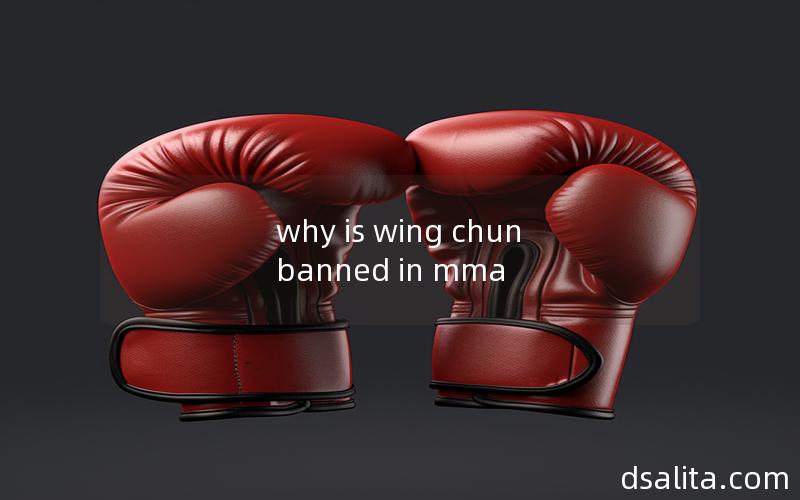Why is Wing Chun Banned in MMA?
Wing Chun, a traditional Chinese martial art, is known for its practical self-defense techniques and unique principles. However, it is rarely seen in mixed martial arts (MMA) competitions. This article aims to explore the reasons why Wing Chun is banned in MMA from various perspectives.
1. Lack of Ground Fighting Techniques
One of the main reasons Wing Chun is banned in MMA is its limited focus on ground fighting techniques. MMA competitions often involve grappling and ground fighting, and Wing Chun practitioners may not be adequately trained in these areas. Without proficiency in ground fighting, a Wing Chun practitioner would be at a significant disadvantage in an MMA match.
2. Insufficient Sparring Experience
Another reason for the ban is the lack of extensive sparring experience in Wing Chun training. MMA fighters are accustomed to intense sparring sessions, which allow them to develop their skills and test their techniques against resisting opponents. Wing Chun training, on the other hand, often emphasizes drills and forms, which may not adequately prepare practitioners for the unpredictable and dynamic nature of MMA fights.
3. Limited Range of Techniques
Wing Chun is primarily designed for close-range combat, focusing on quick strikes, trapping, and simultaneous defense and attack. While this makes it effective in certain self-defense situations, it limits the range of techniques available to a Wing Chun practitioner in an MMA match. MMA fighters utilize a wide range of striking, kicking, and grappling techniques from various martial arts, giving them a more diverse arsenal in the cage.
4. Lack of Competitive Mindset
Wing Chun is often practiced as a traditional martial art for self-defense and personal development, rather than for competitive purposes. MMA fighters, on the other hand, have a competitive mindset and train specifically to win fights in the cage. The lack of emphasis on competition in Wing Chun training may hinder practitioners from adapting to the intense and aggressive nature of MMA fights.
5. Ineffectiveness Against Multiple Opponents
Wing Chun techniques are primarily designed for one-on-one combat situations. In MMA, fighters may face multiple opponents during a match, especially in team-based formats. Wing Chun’s focus on close-range combat and simultaneous defense and attack may not be as effective against multiple attackers, making it less suitable for MMA competitions.
6. Limited Use of Leg Techniques
Wing Chun places less emphasis on leg techniques compared to other martial arts commonly used in MMA, such as Muay Thai or Brazilian Jiu-Jitsu. Leg kicks, knee strikes, and takedowns are essential components of MMA fighting, and the limited use of leg techniques in Wing Chun can put practitioners at a disadvantage when faced with opponents who excel in these areas.
7. Difficulty in Adapting to Rule-Based Fighting
MMA competitions have specific rules and regulations that govern the fights. Wing Chun, being a traditional martial art, may not easily adapt to these rule-based fighting systems. The techniques and strategies employed in Wing Chun may not align with the rules of MMA, leading to difficulties for practitioners in effectively utilizing their skills within the confines of the sport.
8. Lack of Exposure and Testing in Competitive MMA
Wing Chun’s limited presence in competitive MMA further contributes to its ban. Unlike other martial arts that have been extensively tested and refined in MMA competitions, Wing Chun has had limited exposure and testing in this arena. The lack of successful Wing Chun fighters in MMA makes it challenging to gauge its effectiveness and suitability for the sport.

In conclusion, Wing Chun’s ban in MMA can be attributed to various factors, including its limited ground fighting techniques, insufficient sparring experience, limited range of techniques, lack of competitive mindset, ineffectiveness against multiple opponents, limited use of leg techniques, difficulty in adapting to rule-based fighting, and lack of exposure and testing in competitive MMA. While Wing Chun has its strengths in specific contexts, it may not be well-suited for the dynamic and diverse nature of MMA competitions.

 Dsalita Boxing
Dsalita Boxing






